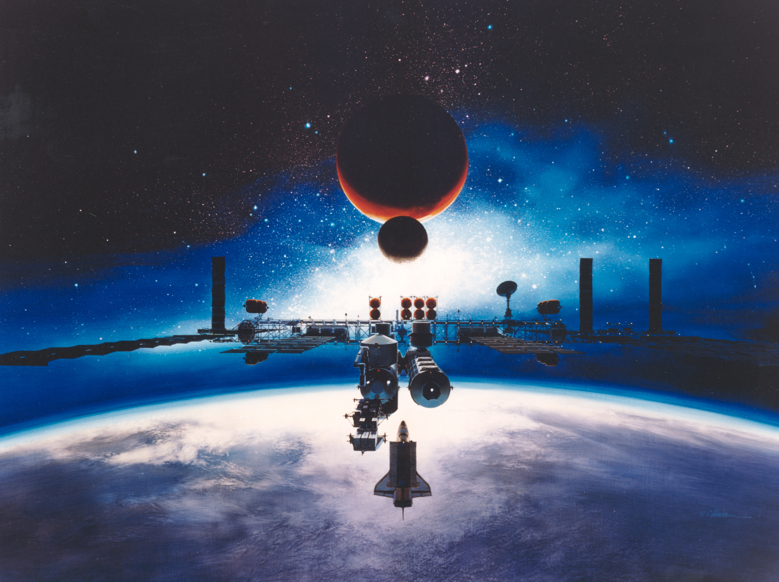What does the conceptual framework of ecological niche have to offer us?
Ecological niche: The status or role of an organism in its environment. An organism’s niche is defined by the types of food it consumes, its predators, temperature, tolerances, etc. Two species cannot coexist stably if they oc- cupy identical niches.
–Oxford Concise Science Dictionary, p 234
The status or role an organism plays in its environment is usually set first and then the organism develops to fill the niche – not the other way around. Plants use sunlight to convert the sun’s energy into stored food to be used later when the sun is not shining. Plants do not have to move about; they are able to store the excess energy in a form that allows them to survive periods when the sun is hidden by clouds during the day and darkness at night. Plant-eating animals developed to use the excess food the plants produced. They learned to move about in order to go from one plant location to another. Animal-eating animals developed to use the energy stored in plant-eating animals. They developed the ability to move fast in order to catch the slower moving plant-eating animals.
This process continued up the food chain with niches becoming more specialized. And then we come to humans. Humanity appears to be the most sophisticated animal on earth. Humanity is unique for many reasons and its relationship within ecological niches is just one interesting example. Ecological niches for plants and animals are created by nature, but humanity appears to have created its own niche.
We may have evolved over a period of millions of years. The point being addressed here is not evolution of our species, but rather the evolutionary development of our ecological niche. We may have started by filling an eco- logical niche, but we now seem to be in a niche of our own making. We appear to be the only life form in our solar system searching for meaning. We have developed our societies in such a manner that we are capable of seeking knowl- edge for knowledge’s sake. Or is there another reason? We may not appear to be filling an ecological niche within this physical universe but perhaps we are filling a niche created by the very existence of the universe itself.
Ecological niche: The status or role of an organism in its environment. An organism’s niche is defined by the types of food it consumes, its predators, temperature, tolerances, etc. Two species cannot coexist stably if they oc- cupy identical niches.
–Oxford Concise Science Dictionary, p 234
The status or role an organism plays in its environment is usually set first and then the organism develops to fill the niche – not the other way around. Plants use sunlight to convert the sun’s energy into stored food to be used later when the sun is not shining. Plants do not have to move about; they are able to store the excess energy in a form that allows them to survive periods when the sun is hidden by clouds during the day and darkness at night. Plant-eating animals developed to use the excess food the plants produced. They learned to move about in order to go from one plant location to another. Animal-eating animals developed to use the energy stored in plant-eating animals. They developed the ability to move fast in order to catch the slower moving plant-eating animals.
This process continued up the food chain with niches becoming more specialized. And then we come to humans. Humanity appears to be the most sophisticated animal on earth. Humanity is unique for many reasons and its relationship within ecological niches is just one interesting example. Ecological niches for plants and animals are created by nature, but humanity appears to have created its own niche.
We may have evolved over a period of millions of years. The point being addressed here is not evolution of our species, but rather the evolutionary development of our ecological niche. We may have started by filling an eco- logical niche, but we now seem to be in a niche of our own making. We appear to be the only life form in our solar system searching for meaning. We have developed our societies in such a manner that we are capable of seeking knowl- edge for knowledge’s sake. Or is there another reason? We may not appear to be filling an ecological niche within this physical universe but perhaps we are filling a niche created by the very existence of the universe itself.

 RSS Feed
RSS Feed